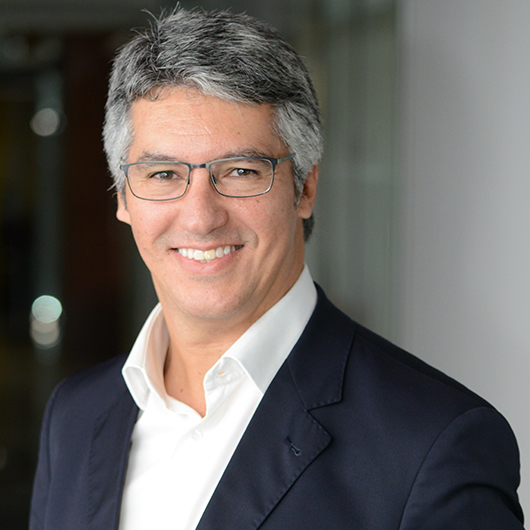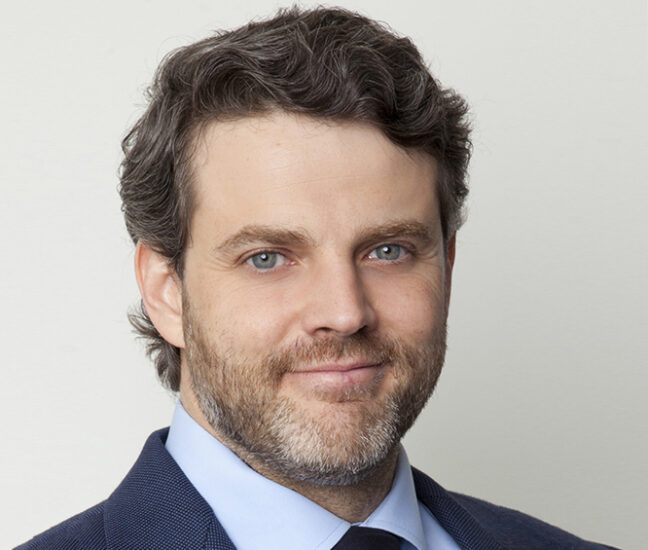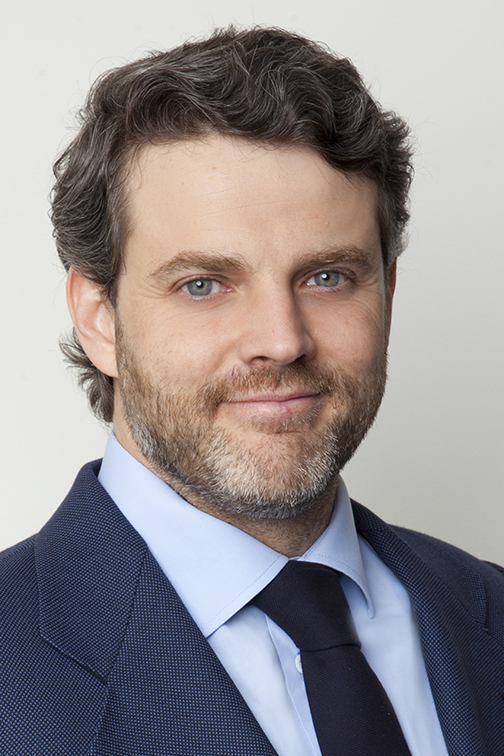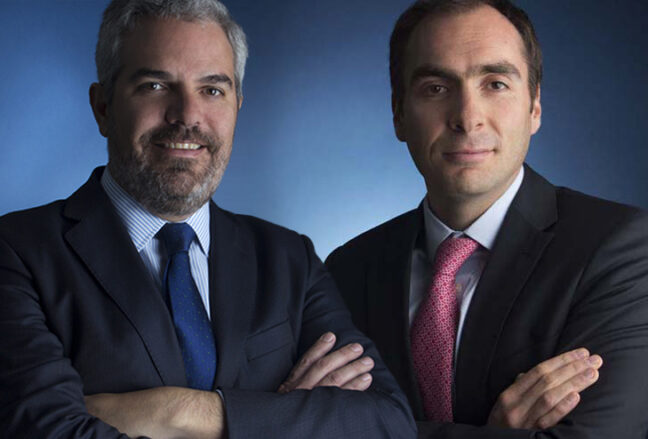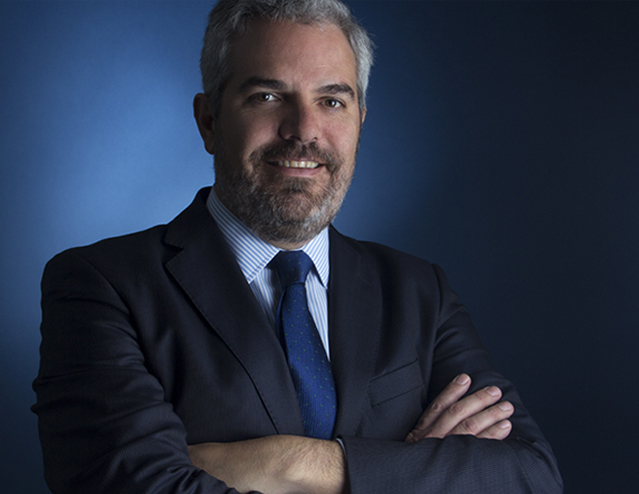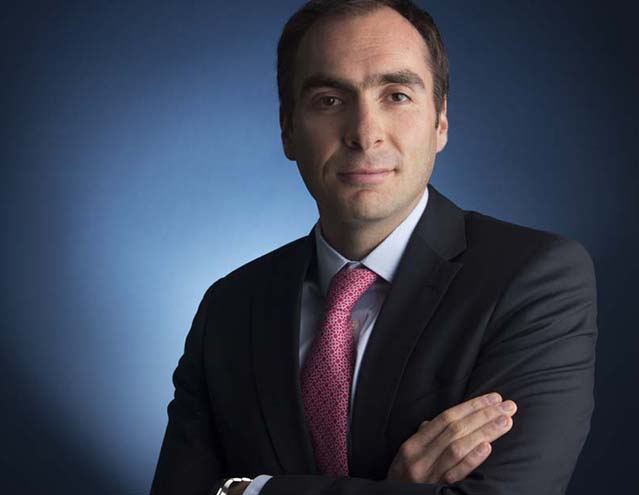Content available in English and Spanish (scroll down)
TTR DealMaker Q&A with Brigard & Urrutia Partner Darío Laguado

Darío Laguado – Brigard & Urrutia
Mr. Laguado joined the firm in 2010 and is currently the chairman of the Corporate/M&A practice. Mr. Laguado focuses his practice in advising clients in cross-border transactions across multiple industries and in advising private equity funds in their investments and divestments in the country, currently having counseled on transactions exceeding an aggregate amount of US$10 billion.
Key representations include the merger of BVC and Deceval, the merger of ACE and Chubb, the merger of Colombia Telecomunicaciones and Movistar, the merger of Bank Itaú and Corpbanca, the acquisition by the Japanese company Itochu Corp. of an interest in Drummond, and the acquisition by Éxito of several companies in the region, among others.
Some of the private equity funds that Mr. Laguado advises include Catterton Partners, MAS Equity Partners, Carlyle, Tribeca Capital Partners and Brookfield Asset Management, among others.
TTR: What are your main takeaways from 2020 in the Colombian M&A market?
D. L.: There are three main takeaways from 2020 in the Colombian M&A market: (i) even though there was a slowdown in the M&A activity in the country, the market rebounded quickly, which demonstrates that the long-term fundamentals, such as market appetite, liquidity and growth perspectives, seem to be largely unaffected; (ii) as history teaches us, there were winning and losing industries, and it is possible that the former outweigh the latter; and (iii) the pandemic accelerated trends that are inevitably transforming the legal industry, such as digitalization, technological improvements, remote work, etc.
TTR: Brigard & Urrutia has advised on important deals in health and technology in Colombia this year. What op drive consolidation in each of these sectors in 2021 and in the op la-to-long term?
D. L.: Indeed, this year we have had the opportunity to participate in interesting transactions. On the one hand, in the health sector, we have participated in the acquisition of assets related to the renal care unit of Clinica Medilaser, the acquisition by Clever Leaves Holdings Inc. of SAMA and its possible entry into NASDAQ; and the sale of National Clinics’ Hospitals; Clínicas Nacional Centenario and Clínicas Nacionales los Nevados, located in Bogotá and Pereira, as well as the contractual assignment of a collaboration agreement through which National Clinics exercised control of the San Rafael Clinic and the sale of the properties in which these clinics operate. On the other hand, in the technology sector, we have participated in the acquisition by MD Cloud Practice Solutions of a majority stake in Wiedii S.A.S. (company specialized in software development and web or mobile applications), the acquisition by Greensill PTY of Omni Intermediate Holdings, LLC and the acquisition by Will Hill Ltd of Alfabet S.A.S. in the online gambling sector.
In 2021, we believe that health and technology operations in Colombia will continue to be driven especially as a consequence of the strength that these sectors have acquired with the arrival of the pandemic in Colombia.
TTR: Technology and Internet were the most dynamics sectors in 2020 in Colombia. What op be the next driver of consolidation in these sectors once the digital transformation wave has played out?
D. L.: The pandemic has created a need to digitize a large part of company processes today has generated an evident growth in the technology and internet sector. This will possibly lead to growth of the different startups and enterprises in the sector, which before Covid-19 we would not have believed would happen so quickly. Examples of this will surely be consolidated in the education, in cybersecurity, telecommunications, delivery, online shopping sectors, among others. These sectors will continue to grow due to regional consolidation, population growth, and new trends that were accentuated by the pandemic.
TTR: What do you expect to be the main challenges for law firms advising on M&A transactions in Colombia and Latin America during 2021?
D. L.: We see several challenges in the year 2021:
In first place, the practice of M&A will surely be influenced by the “aftermath” of the crisis generated by the pandemic. As in any crisis, there are those who have benefited from the pandemic and this can make them active players in the practice of mergers and acquisitions, but certainly there are others who have been greatly affected and we can find them as targets in mergers and acquisitions transactions. For example, companies that have traditionally been reluctant to invest in third parties may have a greater appetite to consider such operations with a view to diversifying their assets or accessing fresh capital. Some private equity funds may see investment options that were previously unavailable. Likewise, we think that the operations of sale or investment of companies in crisis situations will possibly increase.
Second, the government’s fiscal situation, accentuated by the pandemic, will possibly fuel a wave of privatizations, which are highly challenging as they must be implemented through a demanding legal process. These are very relevant operations for the country.
Third, law firms will have to continue operating in a virtual environment for some time. The rituals of closing a transaction can involve formalities and deliverables that require physical presence. The pandemic has forced us to make the transition from these activities to a virtual environment. Except in very rare cases, this transition is perfectly achievable thanks to communication platforms, specialized software, and a little more coordination and discipline. Since they save time and money; Some of the new dynamics may come to stay and it will be a challenge in 2021 to learn and continue to improve in the virtual M&A activity. In terms of due diligence, although for many years most of it has already been done virtually, there are still some aspects that require presence, such as presentation of the administration, field visits, etc.
Spanish version
Darío Laguado – Brigard & Urrutia
Es miembro de la firma desde 2010 y actualmente es socio de la práctica de Corporativo/M&A. Enfoca su práctica en la asesoría a clientes en transacciones transfronterizas en múltiples industrias y en la representación de fondos de capital privado en sus inversiones y desinversiones en el país. El valor de las transacciones en las que ha participado excede de US$10 billones.
Algunas de las transacciones en las que ha participado incluyen la fusión entre la BVC y Deceval; la fusión de ACE y Chubb; la fusión de Colombia Telecomunicaciones y Movistar; la fusión del Banco Itaú con Corpbanca; la adquisición por parte de la compañía japonesa Itochu de una participación en Drummond; la adquisición por parte del grupo Éxito de varias compañías en la Región, entre otros.
Entre los fondos de capital privado que asesora se encuentran Catterton Partners, MAS Equity Partners, Carlyle, Tribeca Capital Partners y Brookfield Asset Management, entre otros.
TTR: ¿Cuáles son sus principales conclusiones de 2020 en el mercado de fusiones y adquisiciones colombiano?
D. L.: Hay tres conclusiones principales de 2020 en el mercado colombiano de fusiones y adquisiciones: (i) a pesar de que hubo una desaceleración en la actividad de fusiones y adquisiciones en el país, el mercado se recuperó rápidamente, lo que demuestra que los fundamentos de largo plazo, como el apetito del mercado, las perspectivas de liquidez y crecimiento no parecen verse afectadas en gran medida; (ii) como nos enseña la historia, hubo industrias ganadoras y perdedoras, y es posible que las primeras superen a las segundas; y (iii) la pandemia aceleró tendencias que inevitablemente están transformando la industria legal, como la digitalización, las mejoras tecnológicas, el trabajo a distancia, entre otros.
TTR: Brigard Urrutia ha asesorado este año importantes operaciones de salud y tecnología en Colombia. ¿Qué impulsará la consolidación en cada uno de estos sectores en 2021 en el mediano y largo plazo?
D. L.: Así es, este año hemos tenido la oportunidad de participar en interesantes transacciones. Por un lado, en el sector salud, hemos participado en la adquisición de activos relacionados a la unidad de cuidados renales de Clinica Medilaser, la adquisición por parte de Clever Leaves Holdings Inc. de SAMA y su posible entrada a NASDAQ; y, la venta de los hospitales de National Clinics; Clínicas Nacional Centenario y Clínicas Nacionales los Nevados, ubicadas en Bogotá y Pereira así como la cesión contractual de un contrato de colaboración mediante el cual ejercía el control de la Clínica San Rafael y la venta de los inmuebles en los que operan dichas clínicas. Por otro lado, en el sector tecnológico, hemos participado en la adquisición por parte de MD Cloud Practice Solutions de una participación mayoritaria en Wiedii S.A.S. (empresa especializada en desarrollo de software y aplicaciones web o móviles), la adquisición por parte de Greensill PTY de Omni Intermediate Holdings, LLC y la adquisición por parte de Will Hill Ltd de Alfabet S.A.S. en el sector de los juegos de azar online.
En el 2021, creemos que las operaciones de salud y tecnología en Colombia seguirán siendo impulsadas especialmente como consecuencia de la fuerza que estos sectores han adquirido con la llegada de la pandemia a Colombia.
TTR: El sector tecnológico e internet han sido los más dinámicos en 2020 en Colombia. ¿Cuál será el próximo motor de consolidación en estos sectores una vez que se haya desarrollado la ola de transformación digital?
D. L.: La necesidad que ha dejado la pandemia de digitalizar una gran parte de los procesos de las empresas, hoy en día, ha generado un evidente crecimiento en el sector tecnológico y de internet. Esto posiblemente conllevará crecimientos de los diferentes startups y emprendimientos del sector, que antes del Covid-19 no hubiéramos creído sucederían tan rápido. Ejemplos de esto seguramente se consolidarán en el sector educativo, en el sector de ciberseguridad, telefonía, delivery, compra online, entre otros. Estos sectores seguirán creciendo debido a la consolidación regional, el crecimiento demográfico y las nuevas tendencias que fueron acentuadas por la pandemia.
TTR: ¿Cuáles espera que sean los principales retos para los despachos de abogados que asesoran en operaciones de M&A en Colombia y América Latina durante 2021?
D. L.: Vemos varios retos en el año 2021:
En primer lugar, la práctica de M&A seguramente se verá influenciada por el “aftermath” de la crisis generada por la pandemia. Como en toda crisis, hay quienes se han beneficiado de la pandemia y esto puede convertirlos en actores activos en la práctica de fusiones y adquisiciones, pero ciertamente hay otros que se han visto muy afectados y podemos encontrarlos como objetivos en transacciones de fusiones y adquisiciones. Por ejemplo, es posible que empresas que tradicionalmente han sido reticentes a la inversión de terceros tengan mayor apetito para considerar ese tipo de operaciones con miras a diversificar su patrimonio o a acceder a capital fresco. Es posible que algunos fondos de capital privado vean opciones de inversión que antes no estaban disponibles. Así mismo, Pensamos que las operaciones de compraventa o de inversión de empresas en situaciones de crisis posiblemente incrementarán.
En segundo lugar, la situación fiscal del gobierno, acentuada por la pandemia, posiblemente fomentará una ola de privatizaciones, las cuales son altamente retadoras pues deben implementarse mediante un proceso legal exigente. Estas son operaciones muy relevantes para el país.
En tercer lugar, las firmas de abogados tendrán que seguir operando en un ambiente virtual por algún tiempo. Los rituales de cierre de una transacción pueden involucrar formalidades y entregables que requieren presencia física. La pandemia nos ha obligado a realizar la transición de estas actividades a un entorno virtual. Excepto en casos muy raros, dicha transición es perfectamente alcanzable gracias a plataformas de comunicación, software especializado y un poco más de coordinación y disciplina. Ya que ahorran tiempo y dinero; algunas de las nuevas dinámicas pueden llegar para quedarse y será un reto en el 2021 aprender y continuar mejorando en la actividad de M&A virtual. En materia de debida diligencia, si bien por muchos años la mayor parte ya se hace de manera virtual, todavía hay algunos aspectos que requieren presencialidad, como presentación de la administración, visitas de campo, etc.



